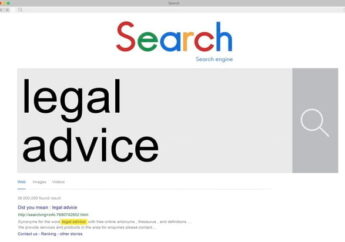A Simple Explanation Of Probate Fees And Costs
by Mony Shah Legal Published on: 31 January 2024 Last Updated on: 01 July 2024

When it comes to settling an estate, one of the most common questions is, “How much does probate cost?” This question becomes particularly pertinent when dealing with the estates of loved ones. Probate fees can vary significantly depending on various factors, such as the estate’s size, the complexity of the assets, and the specific laws of the state where the probate is filed. For instance, in Florida, a state known for its significant retiree population, probate costs can be a matter of concern, with legal fees for probate administration often ranging between 3% to 7% of the estate’s value.
Everything You Need To Know About Probate Costs And Fees!

Probate is the legal process of settling the estate of someone who has passed away. It involves proving that the deceased person’s will is valid, identifying and inventorying their assets, paying their debts and taxes, and distributing their property to their heirs or beneficiaries. Probate can be a complex and time-consuming process, and it also comes with its costs, known as probate fees.
Probate fees are a type of tax that the state charges on the value of the deceased person’s estate. They vary depending on the state where the probate takes place and the size and type of the estate. Probate fees are usually paid by the executor or administrator of the estate, who is the person appointed by the court or the will to handle the probate process. However, the estate can reimburse the executor or administrator for these expenses.
This article will explain probate fees, how they are calculated, and how they can be reduced or avoided. We will also provide some examples of probate fees in different states and tips on planning your estate to minimize probate costs. Our goal is to give you a simple and clear understanding of probate fees and costs and help you make informed decisions about your estate planning.
Understanding Probate Costs
Probate costs encompass several different fees and expenses associated with the legal process of administering a deceased person’s estate. Here are some costs and attorney fees for Probate in Florida:
- Court Fees: These are the fees paid to the court to file probate documents. They vary by state and the size of the estate.
- Attorney Fees: Legal guidance is invaluable in probate proceedings. Attorney fees can be a significant part of probate costs, especially in complex cases.
- Executor Fees: The executor or personal representative of the estate is often entitled to a fee for their services.
- Appraisal and Valuation Costs: Appraisals may be necessary to determine the value of certain assets within the estate, such as real estate or business interests.
- Miscellaneous Costs: These can include costs for accounting, insurance, property maintenance, and other expenses incurred during estate administration.
How Are Probate Fees Calculated?

Probate fees are calculated based on the value of the deceased person’s estate. The value of the estate is the total amount of the assets that the deceased person owned at the time of their death, minus the debts and liabilities that they owed. The assets that are included in the estate may vary depending on the state law, but they typically include:
- Real estate, such as houses, land, and buildings
- Personal property, such as cars, furniture, jewelry, and artwork
- Bank accounts, such as checking, savings, and certificates of deposit
- Investment accounts, such as stocks, bonds, mutual funds, and retirement accounts
- Business interests, such as shares, partnerships, and sole proprietorships
- Life insurance policies, if the deceased person owned the policy or named their estate as the beneficiary
- Other assets, such as royalties, patents, and lawsuits
Read Also: Small Business Laws: Key Points for Business Owners
Factors Influencing Probate Costs
- Estate Size and Complexity: Larger and more complex estates typically incur higher probate costs.
- State Laws: Probate laws and fee structures vary by state. Some states have statutory fee schedules for attorneys and executors, while others allow more flexibility.
- Litigation or Disputes: If there are disputes among heirs or challenges to the will, legal costs can increase significantly.
Minimizing Probate Costs
- Estate Planning: Proper estate planning can help minimize probate costs. Tools like living trusts can bypass probate for certain assets.
- Choose the Right Attorney: Hiring an experienced attorney who understands the nuances of probate law in your state can make the process more efficient.
- Negotiate Fees: Some probate attorneys may negotiate their fees based on the specifics of the estate.
Other Ways: How Can Probate Fees Be Reduced Or Avoided?

Probate fees can be a significant expense for the estate, and they can reduce the amount of inheritance that the heirs or beneficiaries receive. Therefore, many people try to reduce or avoid probate fees by planning their estate. Some of the common ways to reduce or avoid probate fees are:
Making A Will
A will is a legal document that states how you want your estate to be distributed after your death. A will can help you avoid intestacy, which is the situation where the state decides how to distribute your estate according to a fixed formula. Intestacy can result in higher probate fees and unwanted outcomes for your heirs or beneficiaries. A will can also help you name an executor or administrator for your estate who can handle the probate process efficiently and cost-effectively.
Creating A Trust
A trust is a legal arrangement where you transfer your assets to a trustee, who manages them to benefit your beneficiaries. Creating a trust can help you avoid probate, as the assets in the trust are not part of your estate and, therefore are not subject to probate fees. A trust can also help you control how and when your assets are distributed to your beneficiaries and protect them from creditors, lawsuits, and taxes.
Giving Gifts
A gift is a transfer of property or money to another person without expecting anything in return. A gift can help you reduce probate fees, as the assets that you give away are not part of your estate, and therefore are not subject to probate fees. However, you should be aware of the gift tax rules, which may limit the amount and the frequency of your gifts, and may require you to file a gift tax return and pay a gift tax.
FAQs About Probate Costs
Can Probate Costs Be Paid From The Estate?
- Yes, probate costs are typically paid out of the estate’s assets before distribution to the heirs.
Is Probate Always Necessary?
- Not always. Smaller estates may qualify for simplified probate procedures, which can be less costly and time-consuming.
How Long Does Probate Take, And Does The Duration Affect The Cost?
- Probate can take anywhere from a few months to several years. Longer probate processes can increase costs, particularly legal and administrative fees.
Conclusion
While the question, How much does probate cost? Does not have a one-size-fits-all answer. Understanding the factors that influence these costs can help you prepare for the probate process. Whether in Florida or elsewhere, careful estate planning and choosing the right legal assistance are key to managing these costs effectively. Probate can be a complex and emotionally taxing process, but with the right preparation and guidance, it can be navigated with relative ease, ensuring that your loved one’s estate is handled with the care and respect it deserves.







































































































